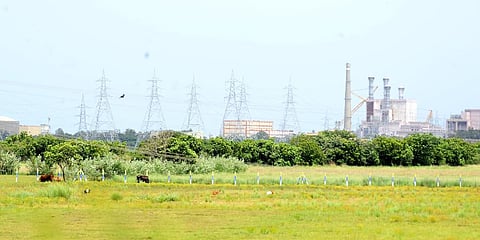

CHENNAI: The state government has recently started allowing sale of land within the 5 km radius of the Madras Atomic Power Station (MAPS) at Kalpakkam located about 80 km south of Chennai.
This has caused concern among the nuclear plant officials. They are worried that any urban growth in the vicinity could hamper evacuation in case of emergencies.
The one-kilometer radius around the nuclear plants is the 'Exclusion Zone' where no development is allowed. The next four-kilometer radius was until last year was termed a' sterile zone'. The nomenclature was changed last year from 'sterile zone' to 'natural growth zone' by the Atomic Energy Regulatory Board. It was after this the sales of land in this zone were being allowed and the nuclear power plant officials were concerned as this may lead to urban growth in the area.
A state government official, who is a member of the Kalpakkam Nuclear Installation Local Authority (KNILA), said that the registration of sales deeds was allowed soon after the change in nomenclature as 'natural growth zone'. It was briefly stopped when the nuclear power plant officials raised objections.
However, the state government official said the issue was "resolved" after the intervention of the Chengalpattu district collector. He said, "The registration (of the land sale deeds) could happen in the villages but then the approval (for any new buildings) will have to be given to KNILA, a 10-member committee headed by the director of the Indira Gandhi Centre for Atomic research."
A revenue department official said people are buying land in this zone unaware that they have to get approval from the Kalpakkam Nuclear Installation Local Authority (KNILA) for any development. This also opens the possibilities of unauthorised development in the zone, hence posing risks. The official claimed that KNILA had relaxed the norms and allowed educational institutions in this zone, provided the developer has evacuation plans. However, officials of
KNILA refused to comment on this.
According to Atomic Energy Regulatory Board's norms, the 'natural growth zone' is synonymous with "the precautionary action zone (PAZ) for emergency planning." It suggests no large-scale development can be permitted in this zone and only 'natural growth' can be allowed.
The nuclear power plant officials are also worried that their concerns on this issue are being intentionally twisted and misrepresented. They referred to the recent news reports that the nuclear power plant is opposing the sales of lands in the vicinity of the plant since there was a threat of a nuclear leak. "This is totally false. There is no threat of leak," said an official from the power plant.